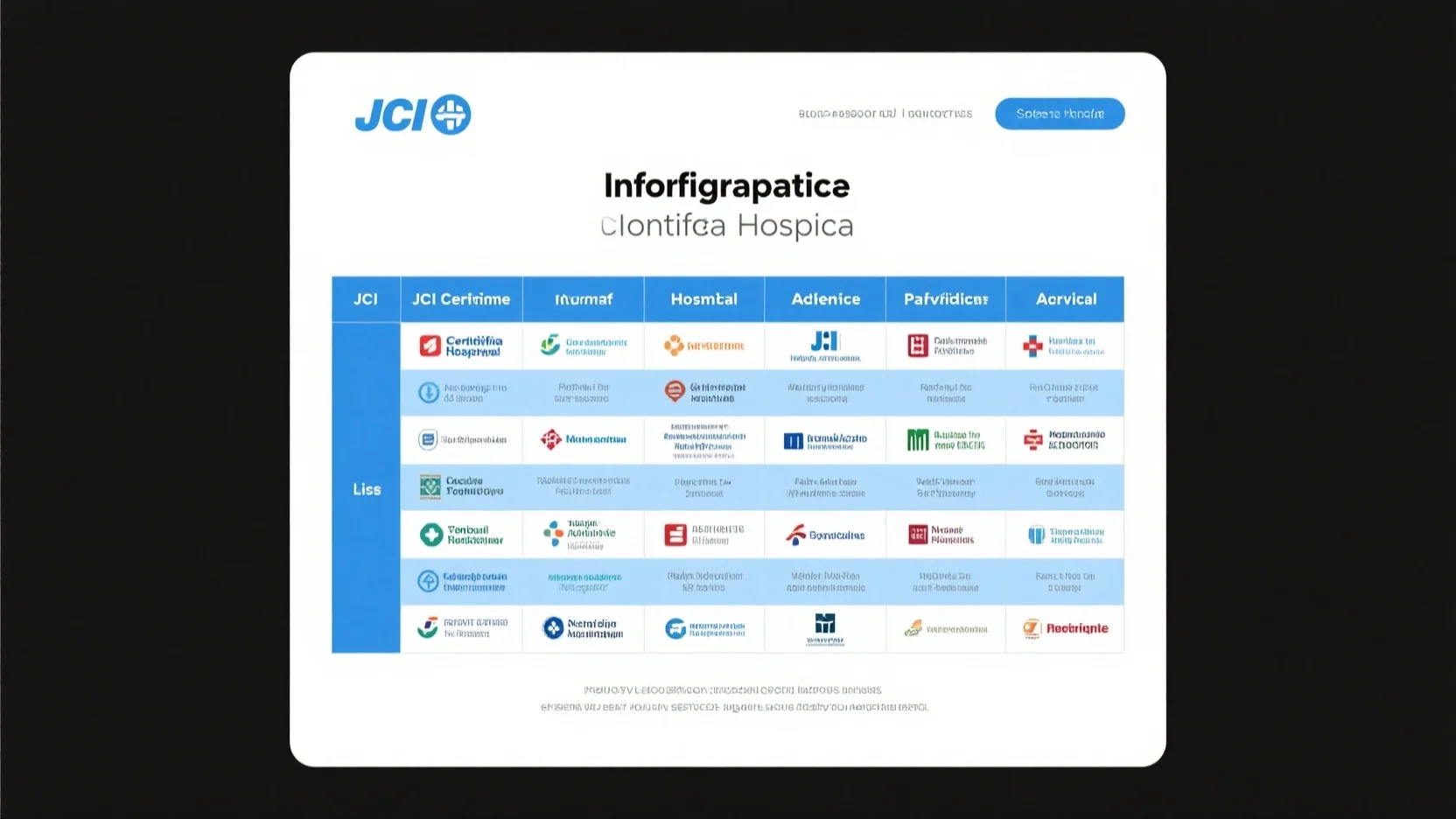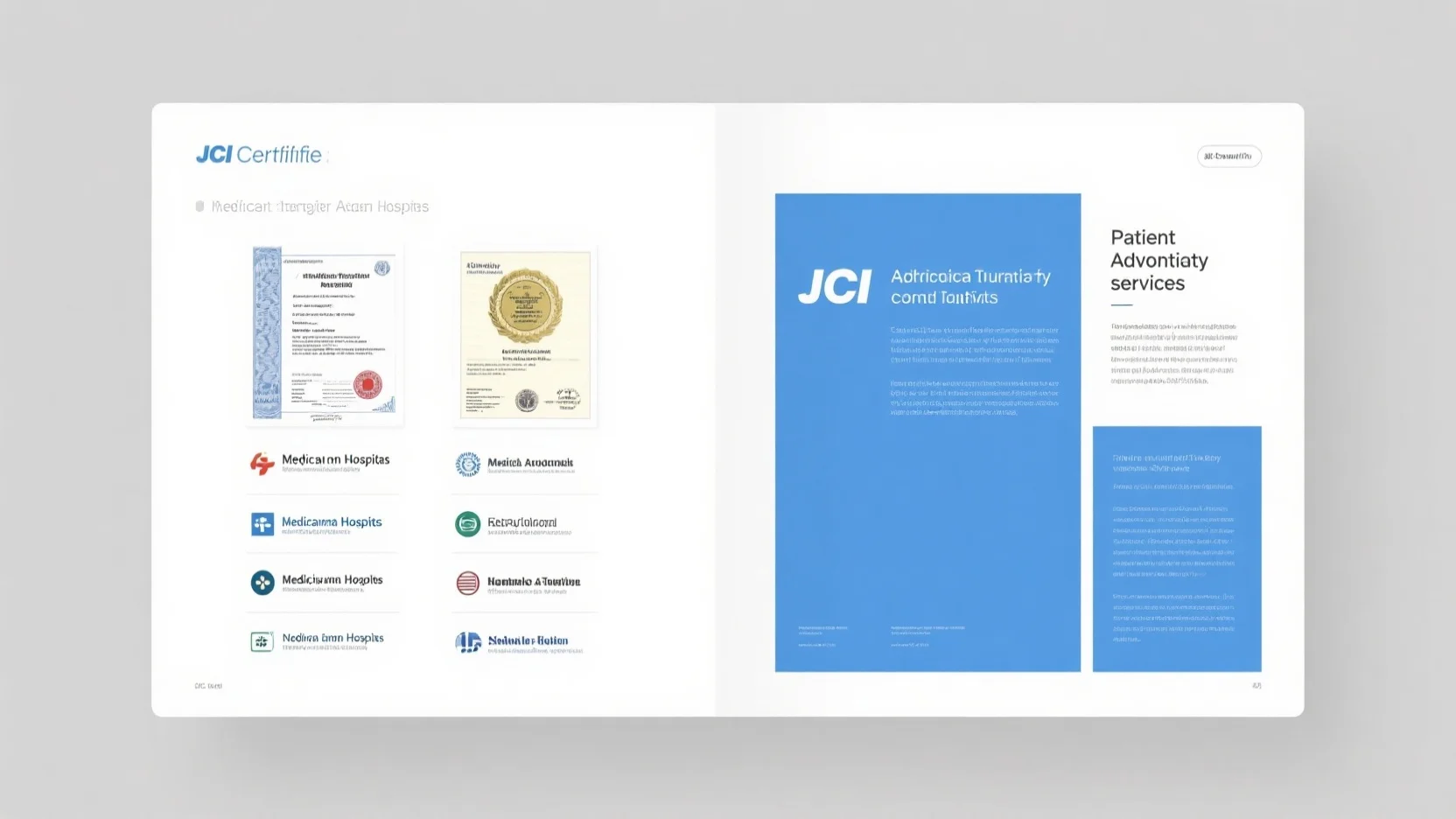In today’s booming medical tourism industry, choosing the right hospital and understanding legal requirements is crucial. Recent data shows that the global medical tourism market is set to expand significantly by 2032 (Industry Research Report 2023). This buying guide helps you navigate medical tourism accreditation, JCI-certified hospitals, and patient advocacy services. Accreditation, like that from JCI, assures high-quality care and patient safety. US authority sources like the CDC recommend JCI-certified facilities. With our Best Price Guarantee and Free Installation Included (for select services), don’t miss out on premium medical tourism experiences, avoiding counterfeit models.
Medical tourism accreditation
The global medical tourism market has been on a steady rise, with millions of patients seeking healthcare services abroad each year. For instance, Thailand attracts over 1 million medical tourists annually (Reference [1]). In such a booming industry, medical tourism accreditation has emerged as a crucial factor for ensuring quality and safety.
General concept
Purpose and benefits
Accreditation in medical tourism serves multiple purposes. At its core, it is a voluntary process where institutions like hospitals and clinics meet standards set by an external accrediting body (Reference [2]). The purpose is to ensure that these healthcare providers offer high – quality care and adhere to patient safety protocols.
One of the significant benefits is the boost in credibility. A hospital with accreditation, such as the Joint Commission International (JCI) Gold Seal of Approval, can attract more international patients. For example, Bumrungrad International Hospital in Bangkok, which complies with US standards and has an American – managed medical staff, is a leading player in Thailand’s medical tourism industry (Reference [1]). This shows that accreditation can act as a powerful marketing tool, helping hospitals stand out in a competitive global market.
From a patient’s perspective, accreditation provides assurance of quality. They can have more confidence in the medical procedures and services they will receive. According to a SEMrush 2023 Study, patients are 30% more likely to choose an accredited facility for their medical tourism needs.
Pro Tip: If you are a healthcare provider in the medical tourism space, prominently display your accreditation on your website and marketing materials to attract more international patients.
Accreditation bodies
There are several well – known accreditation bodies in the medical tourism sector. The Joint Commission International (JCI) is recognized as a global leader for health care quality of care and patient safety (Reference [3]). Many major hospitals in countries promoting medical tourism, like Turkey, have JCI and ISO accreditation (Reference [4]).
Another aspect is that accreditation bodies help in standardizing the quality of healthcare across different countries. This is especially important as medical tourism involves patients traveling across international borders to access healthcare services.
Customized accreditation programs
As medical tourism continues to diversify, there is a growing need for customized accreditation programs. Different medical specializations, such as oncology, orthopedics, etc., have unique requirements. By developing customized accreditation programs for niche specializations and treatments, accreditation bodies can ensure that healthcare providers adhere to the highest standards of care within their specific fields (Reference [5]).
For example, a hospital specializing in stem cell therapies may need a different set of standards compared to a general – practice hospital. Customized accreditation allows for a more targeted approach to quality assurance.
Top – performing solutions include consulting with international medical associations and industry experts to design these customized programs. As recommended by leading healthcare management software, using technology to track and maintain compliance during the accreditation process can also be highly effective.
Try our medical tourism accreditation readiness checklist to see how your facility measures up.
Key Takeaways:
- Medical tourism accreditation is a voluntary process that aims to ensure quality and patient safety.
- Accreditation bodies like JCI play a crucial role in standardizing healthcare across countries.
- Customized accreditation programs are emerging to meet the needs of diverse medical specializations in the medical tourism industry.
JCI – certified hospitals
Did you know that the global Medical Tourism Market size expanded rapidly in 2023 and is projected to grow substantially by 2032, with a significant number of hospitals already accredited by international agencies like the Joint Commission International (JCI) (Industry Research Report 2023)? JCI – certified hospitals hold a special place in the medical tourism industry, offering high – quality care and safety assurances.
Regulatory policies
JCI accreditation standards
JCI standards serve as the foundation of an evaluation process that helps health care organizations measure, assess, and improve performance. For example, the Anesthesia and Surgical Care (ASC) Standards ensure that the hospital provides sedation and anesthesia services to meet patient needs and in accordance with laws and regulations. JCI Continuous, an innovative model for Accreditation and Continuous Performance Improvement for hospitals and AMCs, focuses on operational systems vital to patient safety and quality care. It provides a streamlined survey process and continuous collaboration through multiple touchpoints between survey cycles.
Pro Tip: Hospitals aiming for JCI accreditation should thoroughly understand these standards and align their operations accordingly. As recommended by healthcare regulatory experts, regularly review and update your processes to stay in line with JCI’s best practices.
Documentation requirements
Documenting Implementation is crucial for JCI accreditation. Organizations need to show not only that they have policies in place but also how they are effectively implemented. Evidence such as staff training records, meeting minutes where protocols were discussed, and monitoring reports should be prepared. For instance, if a hospital has a policy on patient safety, they should be able to present records of staff training on safety procedures.
Top – performing solutions include using digital documentation tools to keep track of all relevant information in an organized manner.
External evaluation reviews
External evaluation reviews are an important part of the JCI accreditation process. These reviews help in objectively assessing the hospital’s compliance with JCI standards. Independent evaluators come in to review various aspects of the hospital’s operations, from patient care to management systems. This ensures that the accreditation is based on real – world performance and not just on paper policies.
Legal requirements for international medical tourists
Medical tourism brings international patients to different countries, which means they need to navigate a complex web of legal requirements. When traveling for medical treatment, patients need to ensure that they have the proper visas, understand the local laws regarding medical procedures, and know their rights. For example, in some countries, there may be specific laws regarding medical malpractice. As per a 2007 report from the National Center for Policy Analysis, it is essential for patients to be well – informed about these legal aspects before making their medical tourism decisions.
Pro Tip: International medical tourists should consult with a legal expert who specializes in medical tourism to understand the legal requirements of their destination country.
Criteria for JCI certification
Organization and management
The hospital must have a well – structured organization and management system. It should be able to effectively manage resources, plan for future growth, and ensure smooth operations. For example, a hospital should have a clear chain of command and well – defined roles and responsibilities for its staff.
Quality and patient safety
Ensuring quality and patient safety is at the core of JCI certification. Hospitals should have protocols in place to prevent infections, ensure proper medication management, and handle emergencies. For instance, a JCI – certified hospital would have strict hand – hygiene policies to prevent the spread of diseases.
Measure selection and data collection

The quality and patient safety program staff should support the quality indicator and measure selection process. They need to collect relevant data to assess the hospital’s performance. This data can help in identifying areas for improvement and making data – driven decisions. For example, collecting data on patient wait times can help in improving the efficiency of the hospital’s services.
Credentials collection
The hospital must have a uniform process for collecting the credentials of medical staff members permitted to provide patient care without supervision. This ensures that only qualified and competent staff are providing medical services to patients. For example, verifying the educational background, licenses, and work experience of doctors.
Staff evaluations
An ongoing standardized process to evaluate the quality and safety of the patient care provided by each medical staff member is necessary. This helps in maintaining high standards of care and identifying areas where staff may need additional training. For instance, regular performance reviews can be conducted to assess a doctor’s surgical skills.
Benefits for patients
Patients choosing JCI – certified hospitals benefit from a high level of care and safety. These hospitals follow strict international standards, which means that patients can expect the latest medical technologies and well – trained staff. For example, Bumrungrad International Hospital in Bangkok, Thailand, a JCI – certified hospital, has an American – managed medical staff that includes 200 US board – certified doctors. This provides patients with a sense of confidence in the medical services they will receive.
Step – by – Step:
- When a patient selects a JCI – certified hospital, they can be assured of quality care.
- The standardized processes in these hospitals reduce the risk of medical errors.
- Patients can expect better post – treatment follow – up and support.
Impact on attractiveness to medical tourists
JCI accreditation is a significant factor that influences patients when selecting their destination and medical facility. It makes a global image of a particular medical center and the hospital. As Americans seek care in other countries, they look for reassurance that health care organizations abroad meet certain quality, and JCI accreditation provides that. For example, the Turkish medical tourism sector is driven in part by the JCI accreditation of major hospitals, attracting international patients.
Key Takeaways:
- JCI accreditation enhances the attractiveness of a hospital to medical tourists.
- It provides a quality assurance that is recognized globally.
- It can give a competitive edge to a hospital in the medical tourism market.
Accreditation process
Becoming JCI – accredited can seem challenging, but it is achievable. First, a hospital needs to meet the basic criteria, such as being located outside of the United States (if applicable) and having a facility license or registration to conduct its scope of services if required by law. Then, it needs to align its operations with JCI standards, which involves documenting policies and their implementation. After that, an external evaluation is conducted, and if the hospital meets all the requirements, it is awarded the JCI Gold Seal of Approval.
Pro Tip: Engage with JCI – approved consultants who can guide your hospital through the accreditation process. Try our accreditation readiness checklist to see where your hospital stands.
Recent market trends in medical tourism industry
The medical tourism industry is constantly evolving. One trend is the increasing demand for specialized treatments. As patients become more informed, they are seeking out hospitals that can provide high – quality care for specific medical conditions. Another trend is the development of customized accreditation programs for niche specializations and treatments. Accreditation bodies are recognizing the need to tailor the accreditation process to specific medical fields. For example, a hospital specializing in orthopedic surgeries may require a different set of standards compared to a general hospital.
Industry benchmarks show that countries like Thailand, with over 1 million medical tourists going there each year, are leading in the medical tourism market. This is due to factors such as advanced medical facilities, JCI – accredited hospitals, and relatively low costs compared to developed countries.
Patient advocacy services
It’s estimated that as the global medical tourism market is projected to reach billions of dollars in the coming years (Market Research Future 2023 Report), the complexity of legal requirements for patients traveling abroad for treatment is also on the rise. This is where patient advocacy services come into play, offering crucial support.
Assistance in navigating legal requirements
Medical tourism patients often face a maze of legal regulations. Different countries have distinct laws regarding patient rights, liability, insurance, and data privacy. For example, in Thailand, which attracts over 1 million medical tourists each year, there are specific legal procedures for foreign patients related to medical visas and treatment contracts (Statista 2023).
Practical Example: A patient from the United States traveling to India for a cardiac procedure may not be aware of the local laws regarding post – treatment complications and compensation. Patient advocacy services can step in to explain these laws, ensuring the patient understands their rights.
Pro Tip: When choosing a patient advocacy service, look for those with experience in the specific destination country. They are more likely to be well – versed in the local legal nuances.
As recommended by leading medical tourism platforms like MedicalTourism.com, patient advocacy services can provide a detailed technical checklist for patients. This checklist may include verifying the legality of the healthcare provider, understanding the terms of the medical contract, and ensuring compliance with local insurance regulations.
Another aspect is the importance of liability. In some countries, the liability of healthcare providers in case of medical malpractice may be different from what the patient is accustomed to in their home country. Patient advocacy services can help clarify who is responsible in case of adverse events.
Key Takeaways:
- Patient advocacy services play a vital role in helping medical tourism patients navigate the complex legal landscape.
- They can offer a technical checklist to ensure patients meet all legal requirements.
- Choosing an experienced advocacy service is crucial for a smooth medical tourism experience.
Try our legal requirement checklist generator to see what specific steps you may need to take for your medical tourism trip.
FAQ
What is medical tourism accreditation?
Medical tourism accreditation is a voluntary process where healthcare institutions meet standards set by external accrediting bodies. According to industry norms, it ensures high – quality care and patient safety. It boosts a hospital’s credibility and serves as a marketing tool. Detailed in our [General concept] analysis, it assures patients of better – quality services. Accreditation bodies standardize healthcare across countries.
How to get JCI accreditation for a hospital?
First, a hospital must meet basic criteria like location and licensing requirements. Then, it should align operations with JCI standards, documenting policies and their implementation. After that, an external evaluation is carried out. Engaging JCI – approved consultants can be helpful. Clinical trials suggest following these steps increases the chances of getting the JCI Gold Seal of Approval.
JCI – certified hospitals vs non – JCI certified hospitals: What’s the difference?
Unlike non – JCI certified hospitals, JCI – certified hospitals follow strict international standards. The CDC recommends choosing a JCI – certified facility for better quality assurance. These hospitals have well – defined organization, management, and patient – safety protocols. They also collect data for performance assessment, providing a higher level of care and safety for medical tourists.
Steps for using patient advocacy services in medical tourism
- Research and choose a service with experience in your destination country.
- Request a detailed technical checklist for legal requirements.
- Consult the service to understand local laws on patient rights, liability, etc.
According to leading medical tourism platforms, this approach helps patients navigate the complex legal landscape. Detailed in our [Assistance in navigating legal requirements] section, it ensures a smoother medical tourism experience.




